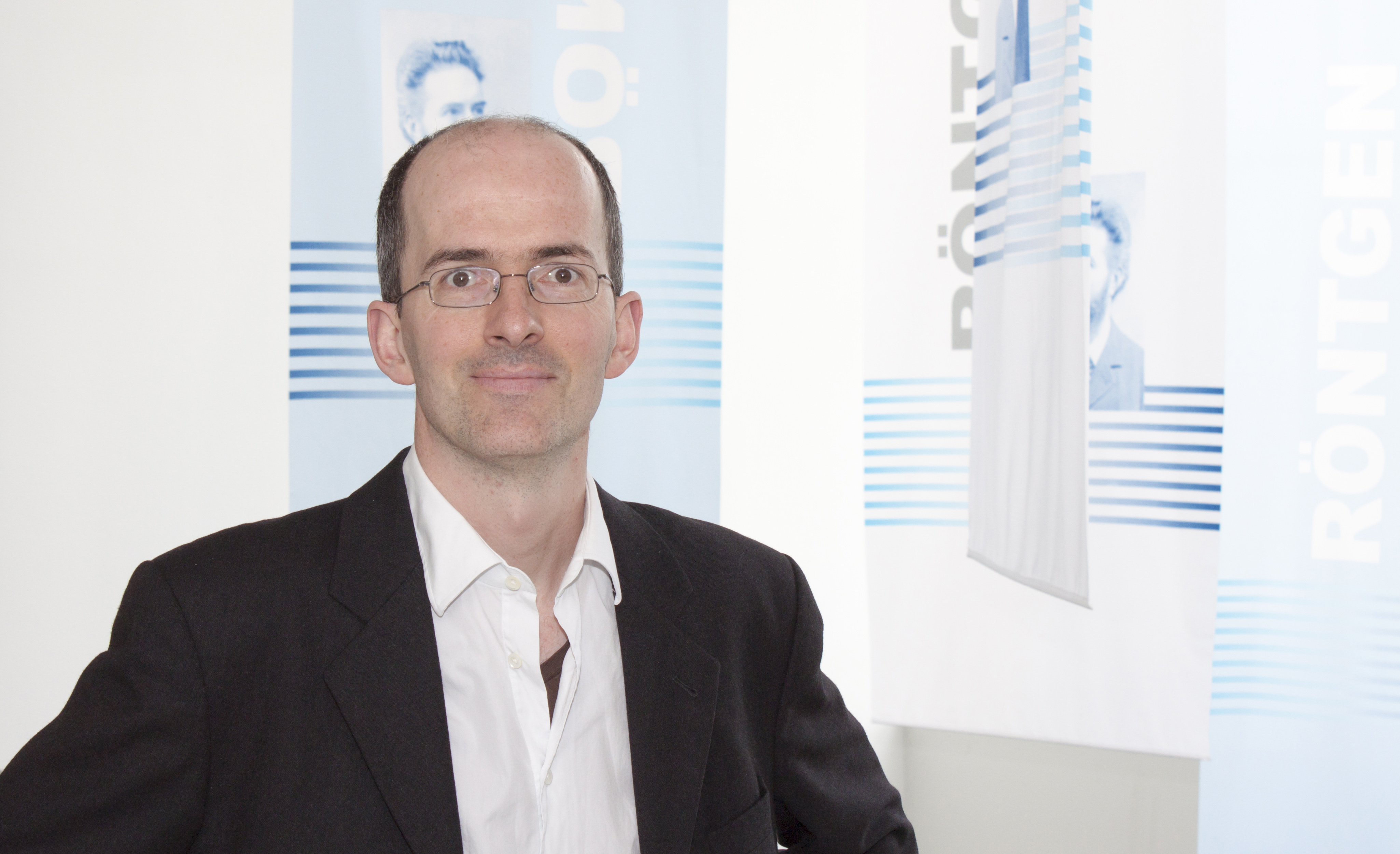Press Release

As part of the ‘Science Year 2014 – The Digital Society,’ the German Informatics Society (GI) has selected 39 men and women who represent a new generation of digital thinkers and doers. These ‘digital brains’ from business, science, and culture show the demands of the future and the digital excellence that Germany has in store. One of these creative brains is Dr. Horst Hahn, professor at Jacobs University Bremen and one of two directors of the Fraunhofer Institute for Medical Image Computing MEVIS in Bremen. The German Informatics Society announced the recipients of the award today in Berlin.
Hahn, 41, who is a physicist and holds a doctorate in informatics, has played a key role in the development of Fraunhofer MEVIS. The institute develops application-ready software systems for image-supported early detection, diagnosis, and therapy. Digitalization, which is gaining importance in medicine, has become a basic requirement for these fields.
Until recently, X-rays were produced and viewed using film. Through digitalization, which has become an established medical practice over the last two decades, doctors can view images in more detail on a computer using specialized programs. Programs developed by Fraunhofer MEVIS facilitate data analysis and help uncover the images’ hidden information. This assists doctors during diagnosis, making findings more accurate and dependable.
In addition, automatic retrieval of previous findings, such as those made during therapy follow-up, can accelerate workflows and reduce costs. Other important information about the course of disease that accompanies most cases is stored digitally, soon allowing multiple patient groups to be compared in detail. This places doctors in a position to select the optimal therapy for each case.
“Digitalization is bringing about massive changes in medicine, but its potential has not yet been fully exploited,” says Hahn. “The software we develop at MEVIS allows much more efficient means of manipulating data.” Horst Hahn was involved in the design of the MeVisLab software package. Using this research tool, software solutions can be created quickly, carefully tested, and developed into finished products. MeVisLab, which helped MEVIS and its spinoff win the 2006 German Founders Award, is currently used by numerous researchers and companies around the world. A leading medical technology company has recently launched software that was developed in Bremen using MeVisLab to support surgeons during liver operation risk analysis and planning.
For over twenty years, MEVIS has researched many aspects of liver surgery, not just planning. A new tablet app helps liver surgeons by delivering digital planning data directly at the operating table and visualizing the organ’s complex vessel system. Radiotherapy can also benefit from intelligent software systems: Hahn and his colleagues are working on adaptive programs that precisely determine changes in a patient’s anatomy during radiation caused, for example, by breathing or tumor shrinkage over the course of multi-week radiotherapy. This directs high-energy radiation to the target area more accurately.
Hahn’s work has also included a focus on developing software to improve breast cancer diagnosis. “Mammography is the standard method for early detection,” says Hahn, “but not all women receive optimal results. In many cases, ultrasound or MRI screenings are more suitable.” The programs, developed in Bremen, help intelligently combine the results of varying imaging methods to retrieve the most information from the data with the hope that malignant tumors can be detected and successfully treated at an early stage.
“All of these procedures are intended to support doctors, not to replace them,” explains Horst Hahn. “The decisions are still made by the doctors, but computers can significantly improve diagnosis and therapy and provide additional safety.” As one of the 39 ‘digital brains,’ Hahn is contributing substantially to tomorrow’s medicine.
 Fraunhofer Institute for Digital Medicine MEVIS
Fraunhofer Institute for Digital Medicine MEVIS